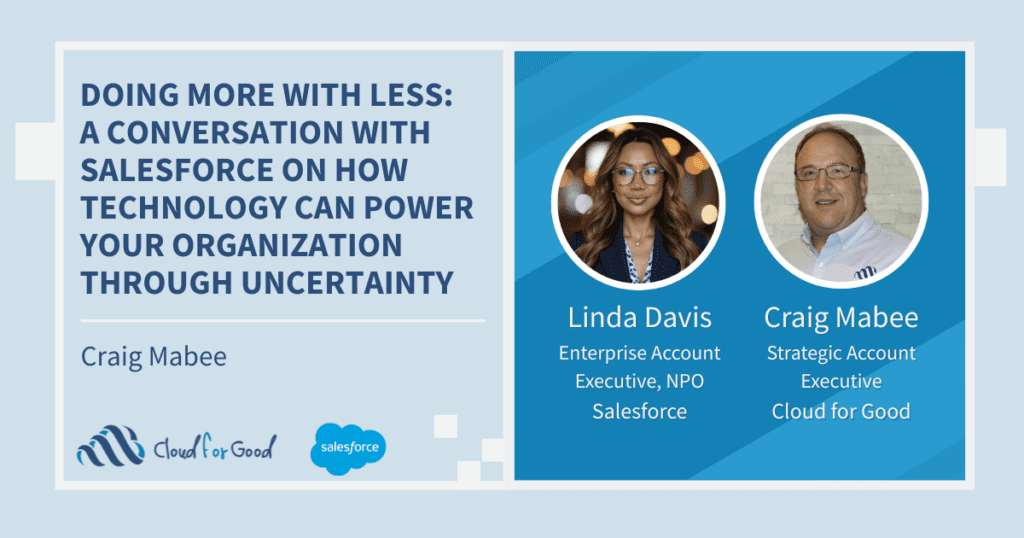A little over a year ago I wrote “To CRM or not to CRM: Is that the Question?” with the purpose of providing nonprofit organizations with some essential questions that they need to ask internally when evaluating if it is time to invest in a Constituent Relationship Management (CRM) solution. The 5 questions were summarized as the 5 W’s: Who, What, Where, Why and When. Every day I have the luxury of speaking with organizations that have asked these questions and determined that now is the time to act. With that decision, a new question pops up that becomes just as important as the original 5 W’s: How do we implement our new CRM? As you can imagine, there isn’t one right answer that works for every organization. However, a common realization is that they cannot do it alone and they need to find a partner that can provide all of the services they need to successfully implement their CRM.
One almost universal attribute I have discovered during my conversations with clients is their obvious desire to do everything they can to select a good partner during this important transition. I wanted to share some of the key steps to take that we believe are essential when beginning to evaluate your potential Salesforce consulting partner to ensure a successful CRM implementation and ongoing partnership.
Background Research
When evaluating a potential partner it is important to determine who they are and what they have done. An easy way to start this process is by visiting their AppExchange listing and their website, reading through the content they provide, reviewing their case studies, and learning as much about their team as possible before scheduling time with them to speak. Once you do some initial research and review as much partner provided content as you can handle, it’s time to reach out to the partner and schedule some face time.
Introduction Call
This is your time to provide the Salesforce consulting partner with an overview of your organization, what your goals are, and what you are looking for from a potential partner. The purpose of this call is not to have all of your requirements set in stone, but instead to be able to provide the partner with a high level view of what your goals are and what is driving the organization to make this change. In addition to sharing what your goals are, this is your chance to evaluate the partner to determine if they are the right one for you. During this interview there are a few key questions that you should always ask as part of your evaluation process:
- What makes you different from other implementation partners?
- What is your implementation methodology?
- Do you have experience doing what I need?
These are the top 3 questions that every organization should have on their list when they talk to potential partners. There are going to be additional questions that you identify as you go through your review process that are somewhat unique to your organization. However, including these three questions it is essential to ensure that you are working with a partner that has your values, a defined implementation methodology, and understands your current needs and hurdles, whether you are looking to become a connected nonprofit by implementing a product like NGO Connect or you want to better manage how you engage with Volunteers. Knowing that your partner has worked with similar organizations to accomplish similar needs is vital. There are a myriad of options when you are evaluating possible solutions for your requirements and having an expert partner will help you avoid spending vital resources towards irrelevant solutions.
Finally, when you are evaluating Salesforce consulting partners, do not be afraid to reveal the elephant in the room we all dance around: your budget! Having a budget shouldn’t be a four letter word anymore. It is your goal to make sure that any investment made in your infrastructure has as high a return as possible. When you are speaking to partners, it should be their goal too! Talking budget from the beginning will allow you to exclude partners that are just out of your financial reach. It will also let your potential partner approach your needs with a realistic solution. Once you decide it is time to implement a CRM, or if you decide that you want to enhance your current CRM, make sure you follow our recommendations. Do your research before speaking to a potential partner to avoid approaching partners that wouldn’t be a good fit. Then, when you narrow down your list of options, make sure you come to the introduction call prepared to share and to ask the questions that are important to you and your organization.





